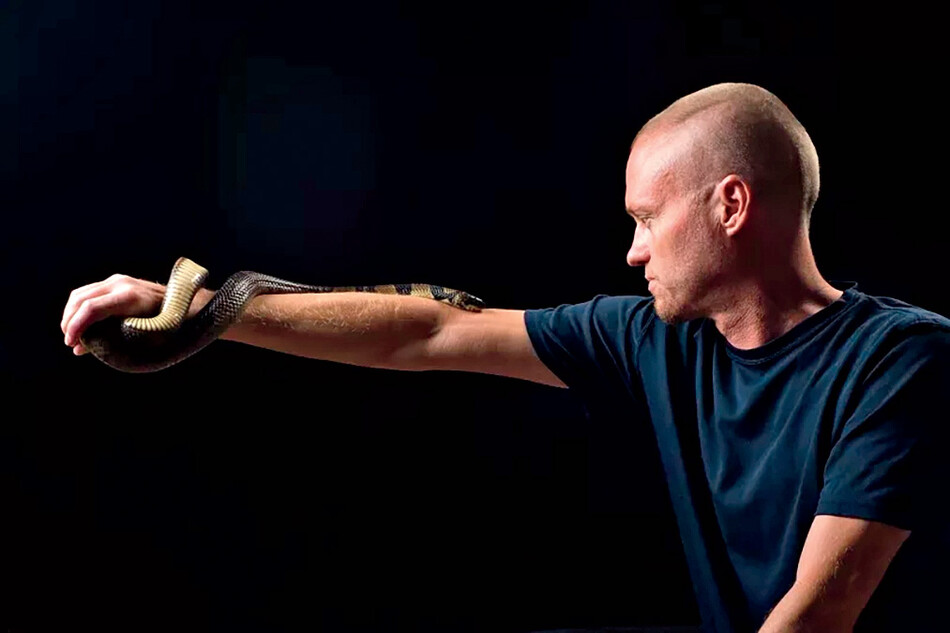Scientists are developing what could become the world’s first universal snakebite therapy with help from an unlikely collaborator: a snake enthusiast who over the course of two decades allowed dozens of his poisonous pets to bite him repeatedly. Hoping to build up a natural immunity, Wisconsin-based reptile fan Tim Friede began by injecting himself with small, gradually increasing doses of venom before inviting rattlesnakes, cobras, mambas, coral snakes, and taipans to sink their fangs into him. Physicians have called Friede’s at-home experiment reckless, yet remarkably, it appears to have worked.
In a recent issue of the journal Cell, Columbia biologist Peter Kwong ’95GSAS and several colleagues report that a therapeutic cocktail they created with antibodies from Friede’s blood and an anti-inflammatory agent can neutralize the venoms of many of the world’s deadliest snakes. Kwong and his coauthors, who include scientists at the biotechnology startup Centivax and the National Institute of Allergy and Infectious Diseases, tested their novel therapy on mice. They soon plan to work with veterinarians to see whether it can save dogs and other pets that have been bitten.
The research team, which now also includes Columbia scientists Henry Colecraft and Lawrence Shapiro ’96GSAS, is studying additional antibodies extracted from Friede’s blood in hopes of developing an even more powerful and broadly effective treatment. The need is urgent, as snakebites kill or permanently disable more than half a million people each year, and existing antivenoms work only for individual species or closely related groups of snakes.
Kwong says that creating a truly universal therapy appears achievable, as there are only about a dozen types of toxins found in all six hundred venomous snake species. “I think in the next ten or fifteen years, we’ll have something effective against each of those toxin classes,” he says.
This article appears in the Fall 2025 print edition of Columbia Magazine with the title "Snakebite solution."



